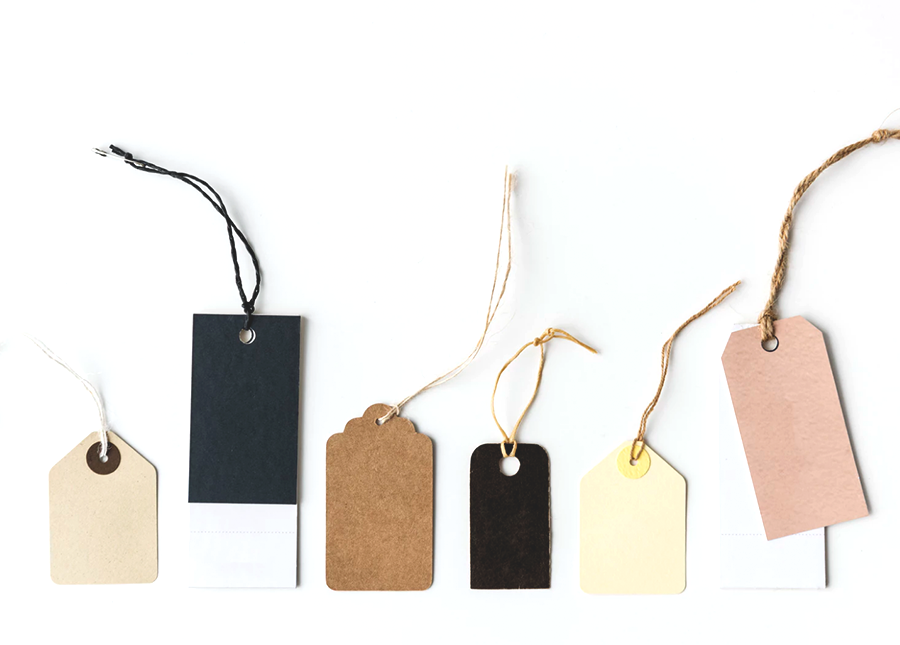How I Turned My Tiny Etsy Side Hustle Into A Full-On Business

A few years ago, I was searching on YouTube and came across some videos about “zero waste” living. It wasn’t an idea I’d heard of before, and frankly, it sounded quite ridiculous that people could live without producing any plastic waste at all. Nonetheless, the idea stuck with me, and I slowly started to reduce the number of plastic bottles and takeaway coffee cups I was using. By November 2017, I was pretty committed to my plastic-free lifestyle and was looking for a replacement for some of the less obvious offenders — one of which was my makeup routine.
After hours of research, it became clear that the no-plastic makeup offerings were non-existent outside of the U.S. and Australia, and even then, they were limited. There was absolutely nothing of the sort based in Europe, and the cost of shipping halfway across the world seemed (to me) to cancel out any environmental benefits of the makeup being plastic-free. I resorted to making my own and, surprisingly, I was actually pretty good at it!
One of the additional things I learned from my research was that lots of other people were looking for Europe-based plastic-free makeup, just like I was. This seemed like the ideal way to make some extra income to supplement my student loans. After getting all the necessary safety certificates and stocking up on supplies, I made up some items and listed them on Etsy. I had no experience in business and basically no idea what I was doing. But despite my lack of knowledge and that I was working off nothing but an idea, in mid-November 2017, LunaZeroWaste was created.
Like with many business ideas, my startup costs weren’t exactly negligible. My costs for setting up LunaZeroWaste came to a total of £913.53 ($1,275.97). £513.53 ($717.27) of this was on materials and ingredients, a cost that is recurring every month, and £400 ($558.70) was spent on the safety testing certificates. The safety tests are a one-off expense; however, every time I add a new product to my range, it costs an additional fee, usually around £150 ($209.51) per product. In that first month, I made £222.12 ($310.25) in sales — while this was nowhere near close to covering my startup costs, I knew that it would be almost impossible for any business to be profitable within only weeks of opening. The fact that I had sold items within hours of listing them is remarkable by Etsy standards alone, and I knew that my idea was good and my products would be successful. In December, I spent £581.90 ($812.77) (mostly on ingredients and postage costs) and had £664.53 ($928.18) in sales, meaning I was starting to edge my way into making a profit on my sales. My figures for January were £550.82 ($769.36) in expenses and £1,069.96 ($1,493.31) in sales, netting me £519.14 ($724.55).
To finance the costs of setting up my business, I used some savings that I had along with part of my student loan payment — while my loan was intended to cover living costs, it meant that I could pay the business startup costs right away, without many more months saving. However, this has also meant several months of careful budgeting in order to build my savings back up (helped by my use of the app Moneybox, which has helped me to make small additions to my savings to meet my goals more quickly).
By working hard on my Instagram to market my products and creating links with some amazing bloggers and YouTubers, I managed to develop a stable side income. My first month significantly in profit was January 2018 (two months after opening), where I made around £500 after expenses.
In February, I have chosen to focus on wholesale and in-person orders. I have built relationships with some amazing independent retailers as far away as Australia, and hopefully, these wholesale orders will continue in the future. I have also taken out a stall at a local artisan market where I hope to connect with local retailers as well as introduce my products to a whole new section of customers. My profits for February are on track to double those from January, which is amazing.
By June 2018, I will have completed my teacher training year, and I hope to have some time to work on my business full-time to see if it is viable in the long term (I currently believe it will be). I am lucky that if it doesn’t work out, I will always have my career in teaching, which I also love, and that the months I have to work on growing will be my long summer holiday anyway. My next steps are to find someone who can mentor my business either in person or online, as I have basically zero real business knowledge, and to keep working on my relationship with customers and retailers to help my business grow into the success I know it can be.
Starting your own business is scary and uncertain. I still don’t know if mine will work out in the long term, but I hope that it will. I know that it is something I love doing, and although it may mean an extension of my student-style budget in the first few months or years, I ultimately feel like it is worth it for the amazing feeling of having created something that is entirely my own.
Elisha is currently studying to be a History Teacher at the University of Oxford, but is originally from Macclesfield, UK. She recently set up her Zero Waste cosmetics business, LunaZeroWaste and can be found on Instagram at @lunazerowastemakeup.
Image via Unsplash




